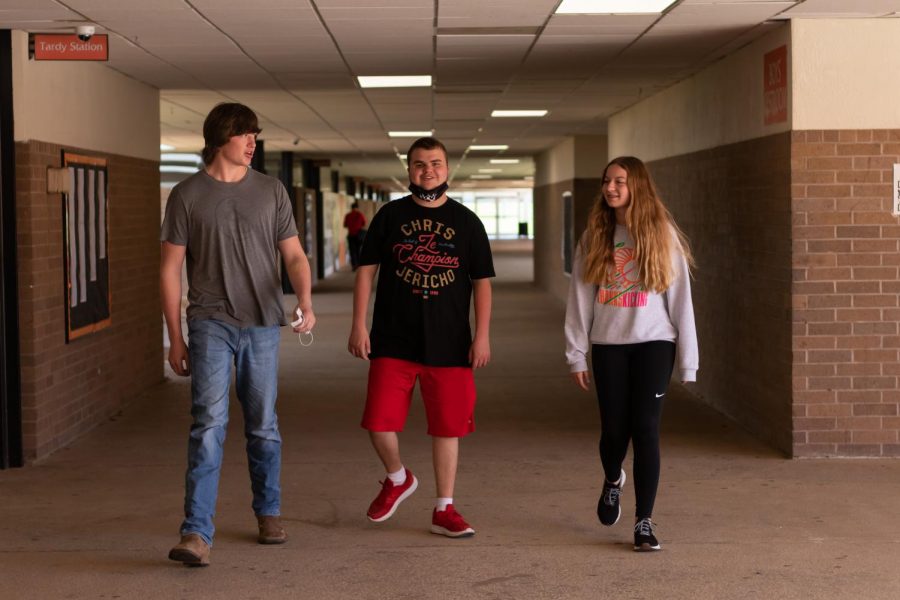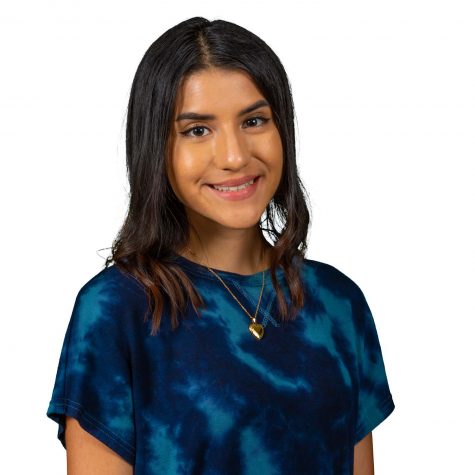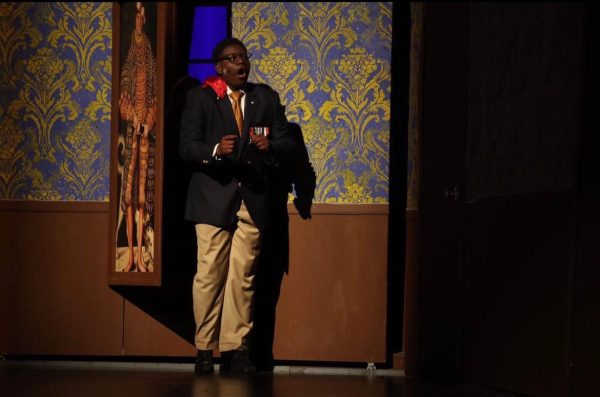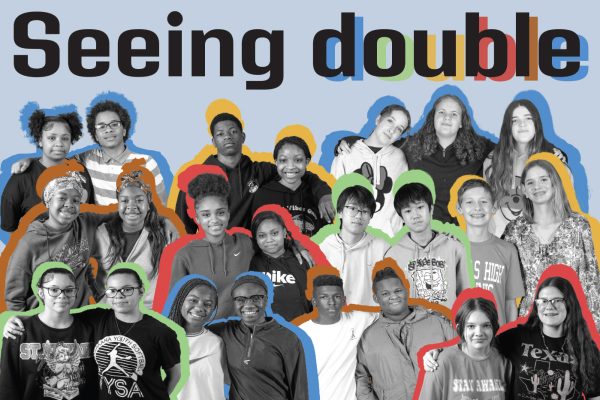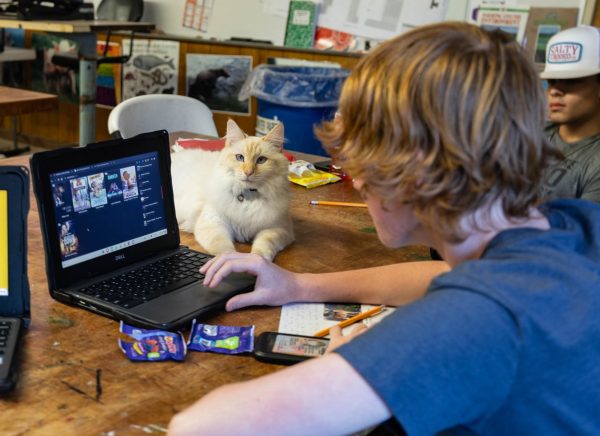I’m just like you
A student’s view on living with Autism
Junior Nicholas Price strolls the halls with friends, junior Thompson Matteson and freshman Annabeth Grace Killian. Although he is kind to others, Autism sometimes hinders his social skills.
May 21, 2021
He knows he’s slow at times. He knows he’s loud and talkative. He knows others look down on him. He knows he’s “different.” He knows he has Autism.
Being on the Autism spectrum has affected multiple factors of junior Nicholas Price’s life, including academic, social and emotional. Despite these challenges, Price doesn’t reject his Autism. In fact, he thinks it’s what makes him, him. He wants people to realize that “Autism is not a bad thing. It’s actually a gift.”
Autism Spectrum Disorder (ASD) is a developmental condition which involves significant social, communication and behavioral challenges, as defined by the Centers for Disease Control (CDC). Autism Speaks, a US-based Autism advocacy and research organization, states that the condition can vary widely among each person. For example, learning and problem-solving skills can range from highly skilled to low-functioning.
Price believes he’s friendly and that he can have a conversation with anyone around school.
“I just walk up and say ‘Hi, how are you doing?,’ or I walk up to someone and compliment them on how good they look,” Price said.
Despite his welcoming personality, however, he feels like his kindness isn’t reciprocated.
“I don’t like how people treat me,” Price said. “When I treat them nicely, I get treated with disrespect, or people make fun of me or post about me for no reason.”
Even with the teasing, the weary glances and the under-the-breath comments, he stays true to his kind-hearted nature.
“It’s who I am. I asked my mom, ‘Why [am I still nice to people]?’ She’s like, ‘Well, that’s just how you are.’ I don’t have a mean bone in my body,” Price said.
Part of the reason for his kind personality he owes to his Autism.
“[Autism] allows [people on the spectrum] to take things a different way,” Price said. “If someone’s saying something rude to us, most people don’t get it, but we know this person doesn’t like us. I take things to heart every time someone says [something].”
Like most high schoolers, having friends is a big deal for Price. He exhibits kindness because he wants what every teen does: a fulfilling social life.
“I know that a lot more people tend to like you and want to be around you when you’re nice and positive,” Price said. “I wish I was invited to parties, or to the beach or to go out to eat. I would much rather do that than sit in my room all day.”
Price feels like a barrier between him and an active social life is people’s attitude towards his condition.
“I’m not invited anywhere,” Price said. “[I] wish [I was treated] the same way they treat a person that [doesn’t have] Autism. I wish people wouldn’t post about me without my permission or harass me. I’m human. I have feelings. I want a life too.”
Price wishes to get rid of the negative misconceptions surrounding people with Autism. He simply wants others to know that they’re just like everyone else because they’re human.
“I want [people] to know that people with Autism are not stupid,” Price said. “We’re not different. We’re not special. We’re just like normal [people].”


